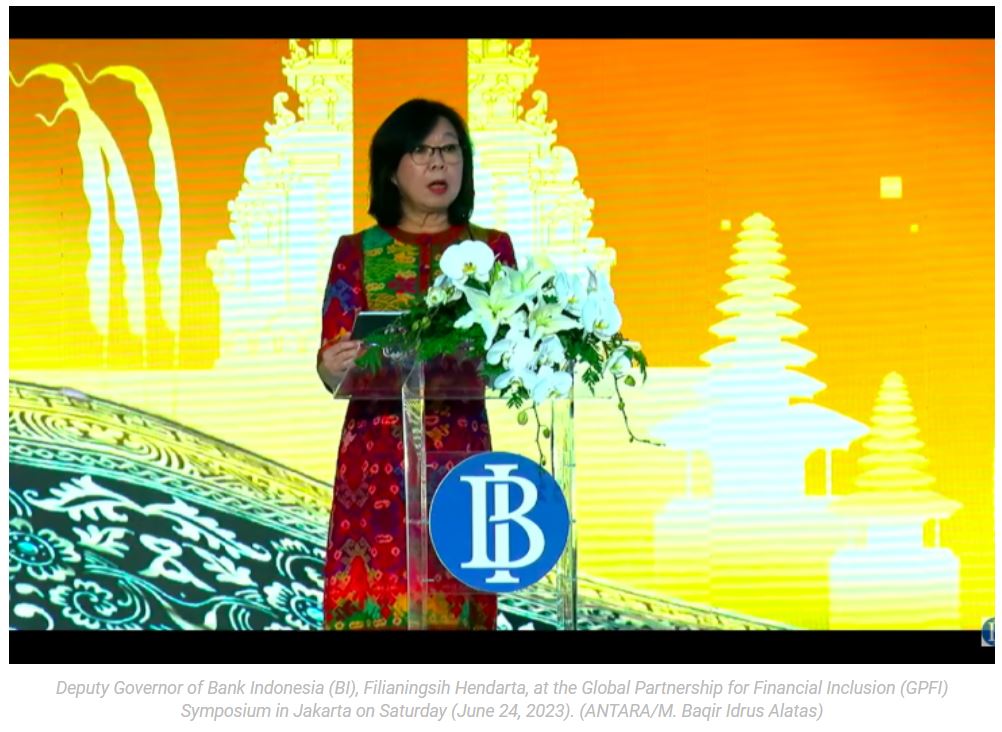Indonesia: Digital economy, finance key to sustainable, inclusive growth: BI
Jakarta (ANTARA) – Deputy Governor of Bank Indonesia (BI) Filianingsih Hendarta has said that digital economy and finance have become vital for achieving sustainable and inclusive economic growth.
“Inclusive digital economy and finance acceleration will result in equal access to economic opportunities and participation. If managed well, we believe digital innovation can become a new source of prosperity,” she added.
Speaking at the Global Partnership for Financial Inclusion (GPFI) Symposium here on Saturday, she said Indonesia’s potential to derive benefits from digitalization is very vast, considering that almost 70 percent of its population falls in the 15–64 age group, and the nation has the fourth largest number of Internet users in the world.
The potential of digitalization may be achieved through electricity, Internet data, high-speed Internet, and smartphones that are more equally distributed, accessible, and affordable.
In the past five years, especially during the COVID-19 pandemic, the prevalence of digitalization has become stronger.
The number of new digital customers has increased by 21 million, Internet penetration has climbed by 74 percent, and 98 percent of merchants in Indonesia have adopted digital payment methods, with 59 percent of them even utilizing digital financing.
“In 2022, the gross merchandise value of Indonesia’s digital economy rose by 22 percent. In Indonesia, fintech and e-commerce are thriving and offering innovative solutions that are focused on consumers,” Hendarta noted.
Furthermore, digital innovation is deemed capable of boosting unbanked and underbanked people’s participation in the financial sector.
Meanwhile, low digital financial inclusion, limited use of digital payments, and lack of digital literacy could hinder the development of the digital economy and prevent people from benefiting from it.
In the context of digitalization, the payment system is an essential entry point for individuals that do not have banking services in order to access financial services.
The use of digital payment systems or online payment platforms will make it more efficient for unbanked people to pay bills, buy products or services, as well as receive and send money.
Under the 2024–2045 Blueprint Payment System, BI is targeting to bring 91.3 million unbanked people and 92.9 million micro, small, and medium enterprises (MSMEs) into the formal economy and finance sustainably with the help of digitalization.
“We hope financially excluded groups will have sustainable access to the financial system and receive optimal benefits from financial and economic inclusion,” Hendarta said.
Source: https://en.antaranews.com/news/286236/digital-economy-finance-key-to-sustainable-inclusive-growth-bi


 English
English




